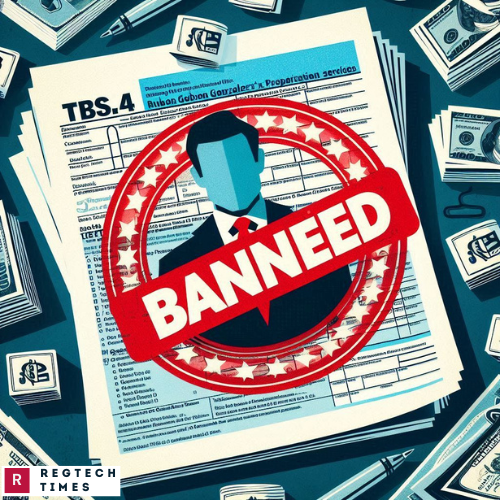In a notable legal decision targeting tax fraud, the U.S. District Court for the Northern District of Texas has issued a permanent ban against Ruben Gonzalez, a Texas tax preparer operating under the name “Sin Barreras Income Tax,” prohibiting him from preparing federal tax returns. This injunction, which Ruben Gonzalez consented to, marks a critical step in addressing fraudulent practices within the tax preparation industry.
Ruben Gonzalez’s Alleged Fraudulent Activities
The court’s injunction follows serious allegations against Ruben Gonzalez, who was accused of engaging in fraudulent activities between 2021 and 2023. According to the government’s complaint, Ruben Gonzalez and his associates were involved in a scheme that inflated clients’ tax refunds through various deceptive practices.
The key allegations against Ruben Gonzalez involve several forms of fraudulent activity. Gonzalez reportedly fabricated business losses, which led to inflated deductions and, consequently, higher tax refunds for his clients. Additionally, he is accused of exaggerating charitable donation deductions, resulting in refunds that clients were not legitimately entitled to. Furthermore, Gonzalez allegedly falsely claimed energy credits and coronavirus family sick leave credits, further increasing the refunds beyond what his clients rightfully deserved.
These fraudulent actions led to an estimated loss of more than $20 million in tax revenue for the U.S. government. This substantial financial impact highlights the serious consequences of tax fraud and highlights the need for strict enforcement measures.
Court’s Permanent Injunction Against Ruben Gonzalez
The court’s permanent injunction against Ruben Gonzalez includes several critical requirements. Gonzalez is now permanently prohibited from preparing federal tax returns through his business, Sin Barreras Income Tax. This prohibition is intended to prevent any further fraudulent activities and safeguard potential clients. Additionally, he must notify each individual for whom he prepared federal tax returns, amended returns, or refund claims between January 1, 2021, and the present. This step ensures that affected clients are informed of the fraudulent activities and can take the necessary actions to rectify their tax situations.
Furthermore, Ruben Gonzalez is required to publicly disclose the injunction. He must post a copy of the injunction at all his business locations and make announcements on all his social media accounts and websites. This public disclosure is meant to inform the broader community that Gonzalez is barred from preparing tax returns, thereby enhancing transparency and protecting the public from potential future fraud. These measures aim to inform the public about the legal restrictions placed on Ruben Gonzalez and reinforce efforts to prevent further fraudulent activities.
Impact on Tax Preparation Industry
The case against Ruben Gonzalez is part of the Justice Department’s Tax Division’s broader initiative to fight tax fraud and promote ethical practices within the tax preparation industry. Over the past decade, the Tax Division has secured injunctions against numerous unscrupulous tax preparers, highlighting the ongoing battle against tax fraud.
Ruben Gonzalez Accused of Defrauding IRS: Justice Department Seeks Legal Action
Deputy Assistant Attorney General David A. Hubbert, who announced the injunction, stressed the importance of vigilance when choosing tax preparers. Taxpayers are encouraged to research and select reputable professionals to handle their tax returns. The IRS offers resources, including a free directory of federal tax preparers and tips for avoiding tax season fraud.
Tips for Taxpayers to Avoid Fraud
To protect themselves from fraudulent tax practices, taxpayers should take several important precautions. They should begin by verifying the credentials of their tax preparer, ensuring that the individual has a valid IRS Preparer Tax Identification Number (PTIN) and is properly licensed. It is also crucial to be aware of any red flags; taxpayers should be cautious of preparers who promise unusually high refunds or who pressure clients into signing returns without a thorough review.
Additionally, taxpayers must meticulously review their tax returns for accuracy before signing, ensuring that all information is correct and legitimate. To further safeguard against tax-season fraud, the IRS provides valuable tips and resources. Staying informed and vigilant can significantly help taxpayers avoid falling victim to fraudulent tax practices.


